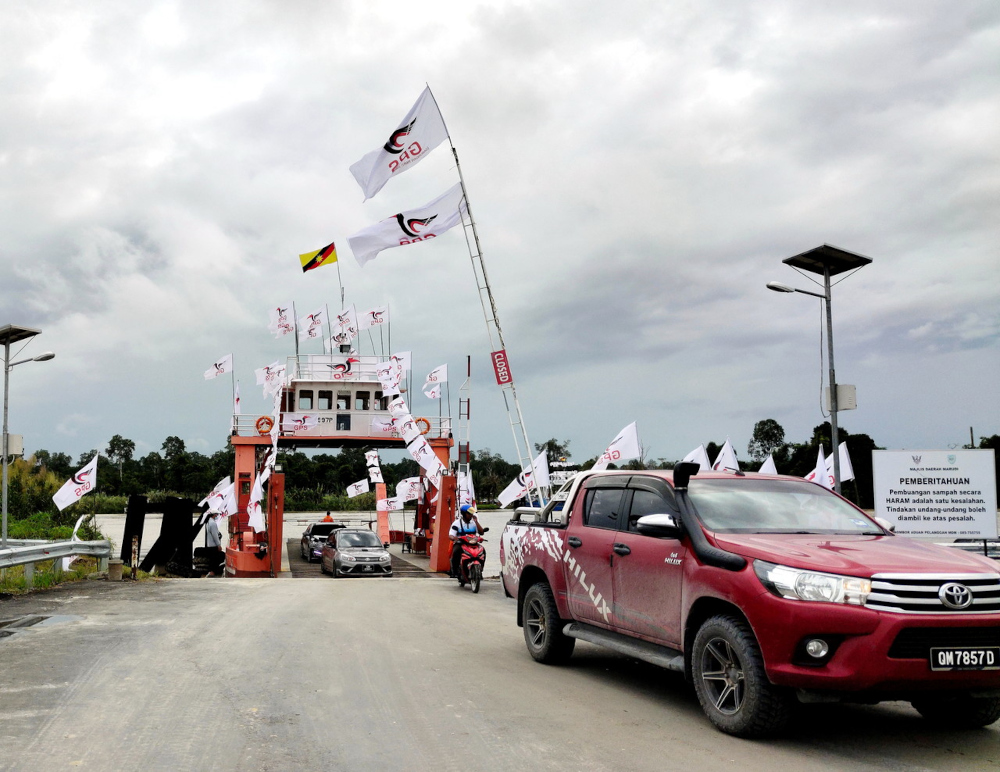KUALA LUMPUR, Dec 6 — The overcrowded 12th Sarawak election will be a fight down the middle with the ruling Gabungan Parti Sarawak (GPS) on one side versus DAP and Parti Sarawak Bersatu (PSB) on the other, said political analysts.
The election set for December 18 drew the largest turnout in Sarawak election history with a record 349 candidates from the GPS coalition, nine opposition parties and independents when nominations took place today.
GPS will face fights for all 82 seats in its first bid as a state coalition since its four component parties quit the federal Barisan Nasional pact in 2018.
Long-time Sarawak political observers, Dr Jeniri Amir and Prof Dr Lee Kuok Tiung, both Sarawakians, were neither surprised by the numbers.
“This time around, it is crowded but the real fight is DAP and PSB against GPS. For the rest, it will be an uphill battle. The question is how many seats the opposition can take, it is not easy to beat GPS which will win the election for sure,” said Jeniri, a retired Universiti Malaysia Sarawak lecturer now a Senior Fellow of the Malaysian Council of Professors.
Lee from Universiti Malaysia Sabah likened it to a three-cornered election, saying DAP and PSB are the parties that can mount a ‘credible fight’ to GPS unlike the rest of the opposition.
The four GPS component parties — Parti Pesaka Bumiputera Bersatu (PBB), Parti Rakyat Sarawak (PRS), Sarawak United Peoples’ Party (SUPP) and Progressive Democratic Party (PDP) — were instrumental in capturing 72 seats in the 2016 polls in which DAP won seven from 31 contested.
Jeniri said PSB may be taking part for the first time but the party that is led by seasoned politician Datuk Seri Wong Soon Koh and also a former cabinet member is “new but not really new”.
“PSB has some formidable candidates, politicians with deep experience who know the ground well. In their midst are former federal minister, professionals and they also have Baru Bian,” he said, referring to the former state PKR chief who will be defending Ba’kelalan on a PSB ticket this round in a five-way tussle.
Lee agrees that Baru will be a big advantage for PSB because he has many hard-core supporters who still support him.
PSB has fielded 70 candidates in its ambition to replace the GPS government and its best chances are seen in the Chinese and Chinese-Dayak mixed seats.
DAP has fielded 26 and its domination remains in the Chinese urban areas. The party is seeking to thwart GPS from achieving a two-thirds majority.
Lee said the popularity of DAP had decreased after the last general election and this can be seen from the responses to the party in social media over “unkept promises”.
“DAP is also facing strong opponents this time. Look at Padungan where Chong’s main rival is the Kuching South mayor,” he said, pointing to state party chief Chong Chieng Jen who has moved from Kota Sentosa to contest the business hub of Padungan.
The two analysts were pessimistic over PKR which has scaled down its candidates to 28 after contesting 40 in the last election and winning three. Since then, Baru and Batu Lintang representative See Chee How have quit, joining PSB while Krian winner Datuk Ali Biju joined Bersatu.
However, Ali today has decided to defend the Krian state seat as an Independent candidate.
“I think in terms of strength, PSB is stronger than what PKR was in 2016,” said Jeniri. — Bernama



















